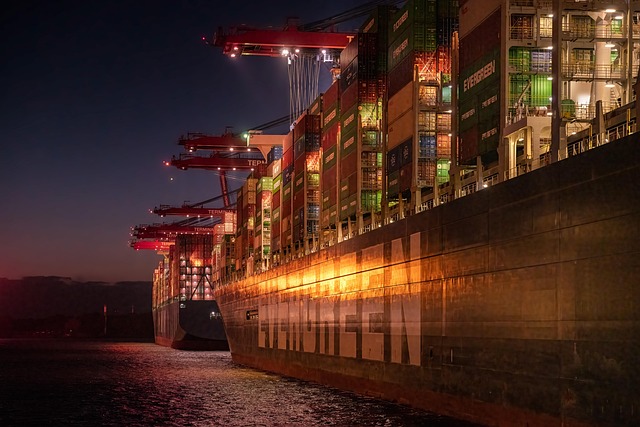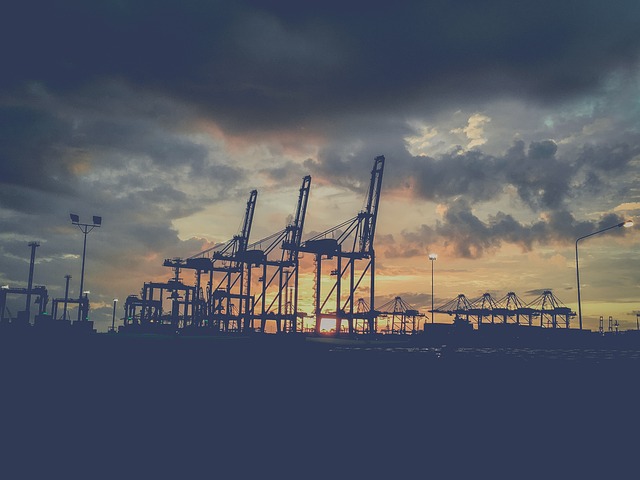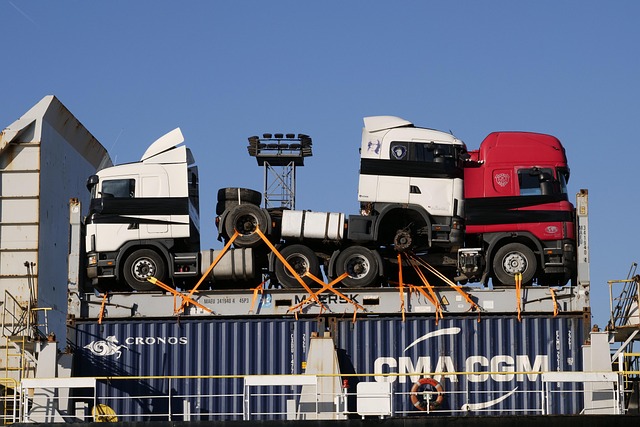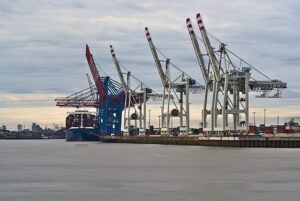Shipping containers are essential for global cargo transport, offering versatile and robust solutions with efficient container shipping. Their standardized sizes and durable materials ensure optimal transport and storage for long-distance travel and harsh conditions. Durable shipping containers, like ISO and refrigerated types, provide advanced security features to protect goods from theft and environmental damage. Best practices for space optimization and security include proper packing, specific container types for freight needs, efficient stacking, leasing services, and regular inspection for safe global cargo transport.
In today’s globalized world, secure and efficient cargo transport is paramount. Durable shipping containers have emerged as a game-changer, revolutionizing international trade by offering robust solutions. This article delves into the multifaceted role of these containers, highlighting their benefits and key features for secure global cargo transport. We explore best practices to maximize container utilization, ensuring seamless movement across borders. Understanding these aspects is crucial for businesses navigating the intricate landscape of international shipping.
- Understanding the Role of Shipping Containers
- Benefits of Using Durable Shipping Containers
- Key Features for Secure Global Cargo Transport
- Best Practices for Efficient Container Utilization
Understanding the Role of Shipping Containers

Shipping containers are integral to global cargo transport, serving as versatile and robust solutions for moving goods across borders and oceans. These intermodal containers facilitate efficient container shipping, enabling seamless transfer between various modes of transportation—from sea to land and vice versa—without requiring any additional handling of the cargo itself. This streamlined process significantly reduces loading and unloading times at ports, minimizing delays and associated costs.
Available in diverse dimensions and configurations like standard ISO containers, high cube, refrigerated, flat rack, open top, and more specialized types, these freight containers offer adaptable cargo container solutions for different product requirements. Their standardized sizes and capacities simplify stacking and loading, ensuring optimal container transport and storage container utilization within depots and during transit. Moreover, robust materials and innovative designs contribute to their durability, making them suitable for long-distance, rough-handling, and even harsh environmental conditions.
Benefits of Using Durable Shipping Containers

Durable shipping containers offer a multitude of benefits for global cargo transport. Firstly, their robust construction ensures the safe and secure movement of goods over long distances, reducing damage and loss during transit. These containers are designed to withstand harsh weather conditions and rough handling, making them ideal for international voyages and intermodal transportation.
Additionally, the versatility of shipping containers allows for efficient container leasing and rental services, catering to diverse freight needs. Whether it’s a standard ISO container for general cargo, a refrigerated container for perishable items, or a specialized modular container like an office container, these versatile boxes can be adapted to transport almost any type of load. This flexibility streamlines logistics operations and saves time and money in the supply chain.
Key Features for Secure Global Cargo Transport

When it comes to secure global cargo transport, durable shipping containers are an indispensable tool for moving goods efficiently and safely across borders. These intermodal containers, like ISO containers or refrigerated containers, offer robust security features designed to protect against theft and damage during transit. Key among these features are heavy-duty construction using high-grade materials, advanced locking mechanisms, and weatherproof designs that safeguard the cargo from harsh environmental conditions.
Additionally, their modularity allows for easy stacking and secure lashing during transport, ensuring stability and reducing handling risks. Container leasing and rental services have made accessing these durable shipping containers more flexible and cost-effective for businesses worldwide. Whether it’s a sea container, flat rack container, or an office container, each type is tailored to specific freight needs, contributing to the seamless movement of goods in international trade while maintaining the highest standards of security.
Best Practices for Efficient Container Utilization

To maximize efficient container utilization for durable shipping, consider best practices that optimize space and security. First, ensure proper packing by securing goods tightly within the cargo container using specialized packaging materials to prevent shifting during transport. This reduces damage and maximizes load stability, especially for fragile or valuable items. Second, utilize various container types tailored to specific freight needs, such as refrigerated containers for perishable goods, flat rack containers for oversized cargo, or high cube containers for maximum storage capacity.
Moreover, efficient stacking techniques are crucial. Line up containers neatly at depots and ports, ensuring even weight distribution to avoid damage during transshipment. Leverage container leasing and rental services to access a diverse range of intermodal containers according to demand, thereby minimizing idle time and maximizing operational flexibility. Regularly inspect and maintain shipping crates, including checking for any signs of wear or tear, to guarantee the integrity of both the container and its contents throughout global cargo transport.
Durable shipping containers are not just efficient for global cargo transport; they are a cornerstone of modern logistics. By understanding their role, leveraging their benefits, and implementing best practices, businesses can ensure secure and seamless transportation worldwide. The key features that enhance security further solidify their position as indispensable tools in the global supply chain.
